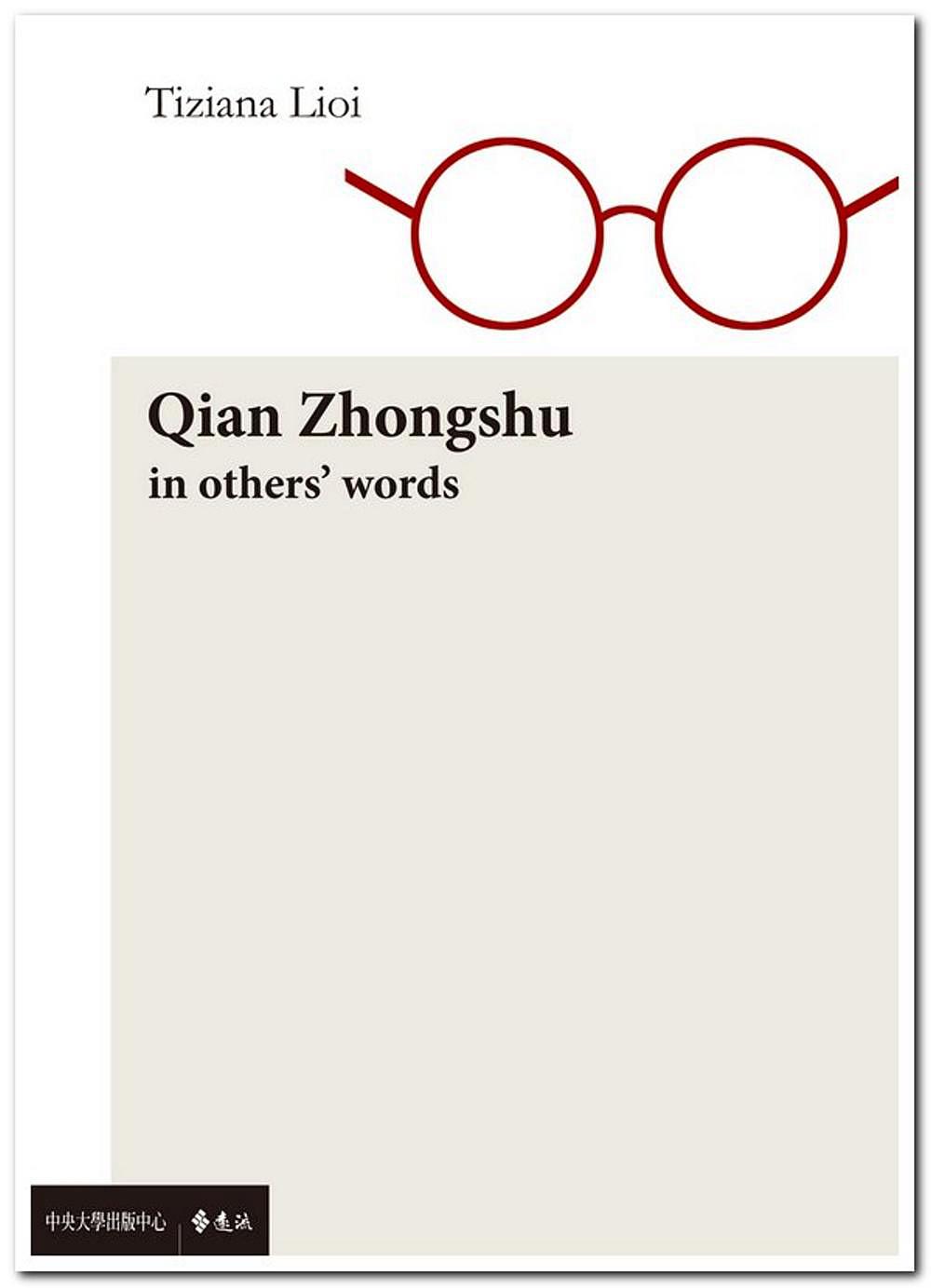- 定價650.00元
-
8
折優惠:HK$520

|
|
|
|
Qian Zhongshu in others’ words (英文版)
|

|

沒有庫存
訂購需時10-14天
|
|
|
|

|
|
9789865659011 | |
|

|
|
Tiziana Lioi | |
|

|
|
遠流 | |
|

|
|
2014年9月06日
| |
|

|
|
133.00 元
| |
|

|
|
HK$ 113.05
|
|
|
|
|

| |
|
|
|
|
| |
|
|
詳
細
資
料
|
ISBN:9789865659011叢書系列:大學用書規格:平裝 / 296頁 / 25k正
大學用書
|
|
分
類
|
文學小說 > 文學研究 > 華文文學研究 |
同
類
書
推
薦
|
|
|
內
容
簡
介
|
Chinese comparative literature has a great representative in the contemporary scholar and writer Qian Zhongshu (1910-1998). His comparative method defies every categorisation and his extensive use of quotations in seven languages-the main characteristic of his style-creates a collage of literary motifs and genres that constitutes a fertile field for analysis to grasp the general principles of world literature.
Italian quotations and the influence of Italian literature on the comparative method of Qian Zhongshu are the main concern of this analysis, and are a topic never before dealt with in mainland and overseas Qian Xue studies.
The study outlines the threads that move Qian Zhongshu in the choice of authors and works that constitute, in quotation, the core of his method and answers questions on the necessity of such a consistent use of quotations and on the role that foreign literatures, with a focus on the Italian one, have in the definition of a comparative method that seems to be all-inclusive and difficult to grasp.
To seize an understanding of the principles that lead global literatures in an enhancement of mutual comprehension between countries and peoples seems a desirable yet unrealistic goal: Qian Zhongshu, through his use of quotations to establish a dialogue between different historical epochs and distant spatial settings, wants to demonstrates that this desire is attainable.
|
|
目
錄
|
Acknowledgments
Introduction
Scope and purpose of the study
Organisation of the work
Limitations of the study
CHAPTER 1
Qian Zhongshu and comparative literature
CHAPTER 2
"It is commonly said that human life is a big book"
2.1 1910-1935 From Wuxi to Beijing
2.2 1935-1938 Years abroad
2.3 1939-1949 From Shanghai to Beijing
2.4 The essays: Xie Zai Rensheng Bianshang
2.5 Long and short stories: Ren Shou Gui and Wei Cheng
2.6 Discourses on Art: Tan Yi Lu
2.7 1949-1969 Years in Beijing
2.8 The poetic side: Songshi Xuanzhu
2.9 1969-1972 Years "down-under"
2.10 1972-1998 Return to Beijing
2.11 The masterpiece: Guan Zhui Bian
2.12 Final Years
CHAPTER 3
Tracing the roots of Qian Zhongshus method: a long time legacy
????? 3.1 The Rongan Guan Zhaji
CHAPTER 4
Writing marginalia on the book of human life: the use of quotations in the comparative method of Qian Zhongshu
??? 4.1 Comparing through quotations
??? 4.2 Quoting as a mode of original elaboration
??? 4.3 Quoting as a debate among sages of the past
??? 4.4 Juxtaposition in quotations: "datong" and striking combinations
??? 4.5 Quotations as a looking glass
??? 4.6 Quotations as proof of truth: unveiling mistakes
??? 4.7 In others words
CHAPTER 5
Italian quotations in Qian Zhongshus works: a mutual illumination
??? 5.1 From Dante to Leopardi: past theories into the present
???? 5.1.1 Dante
???? 5.1.2 Petrarca
???? 5.1.3 Italian tales: Sacchetti, Basile, Bandello, Boccaccio.
???? 5.1.4 Epic poetry in literary criticism: Ariosto, Tasso, Boiardo
???? 5.1.5 Renaissance men: Leonardo, Lorenzo De Medici
???? 5.1.6 Marinisti: Italian Baroque poetry
???? 5.1.7 Historians and philosophers between Renaissance and Baroque: Machiavelli, Guicciardini,???? Bruno, Campanella, Castiglione.
???? 5.1.8 The light of reason: Vico, Muratori, Beccaria, Verri.
???? 5.1.9 Leopardi, Manzoni and 19th century poetry and novels
??? 5.2 From Pascoli to Eco: present ideas to shed light on the past
???? 5.2.1 Giovanni Pascoli
???? 5.2.2 Literary critics in the essays: Croce, De Sanctis, Provenzal
???? 5.2.3 20th Century Poetry and Novel
CHAPTER 6
Conclusions
6.1 Language
6.2 Historical Periods
6.3 Authors and quotations
6.4 Quotations that stand the test of time
6.5 Becoming a field of study: Qian Xue 錢學
6.6 One hundred years of Qian Zhongshu
Appendix 1: Brief outline of Western comparative studies
Appendix 2: Brief outline of comparative literature studies in China
Index of Italian autors
References
|
|
序
|
前言:
Chinese comparative literature has a great representative in the contemporary scholar and writer Qian Zhongshu (1910-1998). His comparative method defies every categorisation and his extensive use of quotations in seven languages-the main characteristic of his style-creates a collage of literary motifs and genres that constitutes a fertile field for analysis to grasp the general principles of world literature.
Chinese scholars have established a discipline, the Qian Xue (Studies on Qian); since the 1980s, research on Qian Zhongshus achievements and methodology plays an important role in understanding of the authors approach to writing and literature. Western scholarship and investigation into the work of such a complex and varied literary production is a step that needs to be further developed, since western literature constitutes a great part of Qians thematic choices. The number of languages involved in the analysis and the huge number of cross references in Qians work require a set of skills of which this study is a small yet necessary part, analysing the contribution of Italian literature to the comparative method of Qian Zhongshu.
Italian quotations and the influence of Italian literature on the comparative method of Qian Zhongshu are the main concern of this analysis, and are a topic never before dealt with in mainland and overseas Qian Xue studies.
The study outlines the threads that move Qian Zhongshu in the choice of authors and works that constitute, in quotation, the core of his method. As in a case study, a meticulous analysis of all the Italian quotations that appear in Qians literary essays, the present study answers questions on the necessity of such a consistent use of quotations and on the role that foreign literatures, with a focus on the Italian one, have in the definition of a comparative method that seems to be all-inclusive and difficult to grasp.
A deductive method is used to delineate the comparative method and the general principles that guide the author through the study and analysis of single quotations.
To seize an understanding of the principles that lead global literatures in an enhancement of mutual comprehension between countries and peoples seems a desirable yet unrealistic goal: Qian Zhongshu, through his use of quotations to establish a dialogue between different historical epochs and distant spatial settings, wants to demonstrates that this desire is attainable.
當代著名學者和作家錢鍾書(1910年∼1998年)是中國比較文學界的一位代表人物。他研究比較文學的方式與眾不同,主要特點在於能在作品中大量地利用七種不同外語的引文,從而創建了一種中外文學主題和體裁的「拼貼」方式,開拓了進行比較分析的一個廣闊領域,以此把握世界文學創作的一般性原則。
中國學者八十年代已建立了一門叫做「錢學」的學科,該學科的主要目的是研究錢氏的成就和治學方法。中國"錢學"的價值在於能夠使人們更多瞭解作為學者和作家的錢鍾書的創作意義,不過儘管如此,西方學者的研究仍然是一個必要的補充,因為錢鍾書的創作中很多方面涉及到了西方文學,而面對如此一位學識博大精深的作家,西方的研究需要進一步的發展。
因為需要分析的內容包括不同語言和大量的交叉引用,研究錢鍾書對世界比較文學的貢獻是一個宏大的課題,本論文的嘗試只是其中是一個微小的,但卻是必要的一部分,它主要分析義大利文學對於錢鍾書的比較文學方法的貢獻。
本論文通過對錢鍾書論著中義大利文引文部分的分析,研究錢鍾書在其作品中所引用的義大利作家和作品,最終的目的在於探究錢鍾書比較文學研究方法的內質。
本論文的研究方法主要以案例研究為主,通過細緻解析錢鍾書散文中所出現的義大利語引文,進而把焦點集中在錢鍾書與義大利文學的關係上,從而試圖回答以下幾個問題:錢鍾書的著作為什麼能旁徵博引,貫通古今,融會中西?他作品裏出現的外國文獻主要作用是什麼?今天的研究者以何種途徑入手才能全面瞭解其包羅萬象,看似難以把握的比較方法?論文以演繹的方式剖析作為學者的錢鍾書論著的比較方法,並進一步挖掘其研究方式的內質。
要抓住世界文學創作的一般原則,加強不同國家和不同國家人民之間的相互理解,似乎是一個過於理想化的願望。不過錢鍾書,這位知識淵博的中國學者,通過在他的著作中精確地援引世界文獻,成功地幫助全球文化開展了跨越時空的對話,他希望能夠證明實現這一願望雖然任重道遠,但畢竟是有可能的。
|
|
|
書
評
|
|
|
|
|

